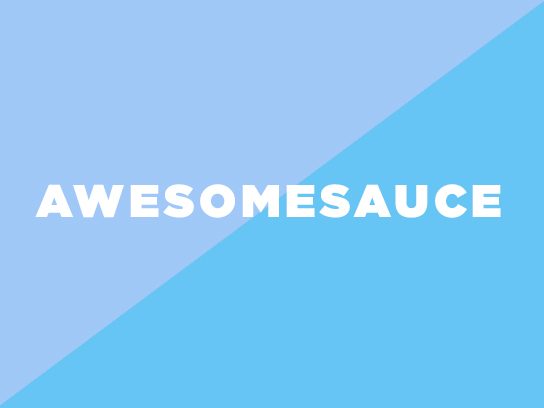
Awesomesauce
This slang term for “good” was first uttered by the character Strong Bad in the Homestar Runner web series of animated shorts, created by brothers Mike and Matt Chapman in the early 2000s. In one webisode, after Strong Bad pours ketchup all over his computer (so his email replies will be funnier), he asks the Cheat, “Aren’t you going to get your 409 or Awesome Sauce or whatever you’re going to clean this up with?” Today, #awesomesauce is one of the most popular Twitter hashtags.
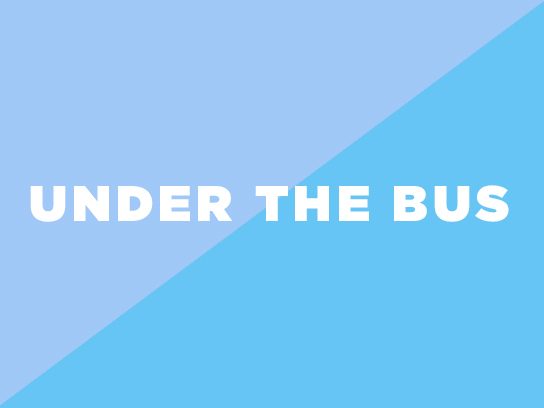
Under the Bus
The origin of this go-to reality-show phrase, writes Paul Dickson in the book Slang: The Topical Dictionary of American- isms, comes from minor league baseball in the late 1970s. When it came time to leave for the next game, the call went out: “Bus leaving. Be on it or under it.” The phrase first appeared in print in a 1980 Washington Post article, and in 1984 rocker Cyndi Lauper helped popularize it when she said, “In the rock ‘n’ roll business you are either on the bus or under it.”
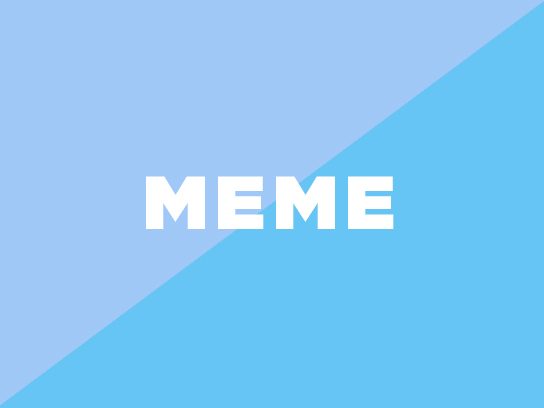
Meme
Evolutionary biologist Richard Dawkins coined the term meme in his 1976 book The Selfish Gene, where he used it to describe concepts and behaviors that spread from person to person in a given culture. Decades later, the Internet snapped up the term, but Dawkins doesn’t mind: “The meaning is not that far away from the original. I did actually use the metaphor of a virus. So when anybody talks about something going viral on the Internet, that is exactly what a meme is.”
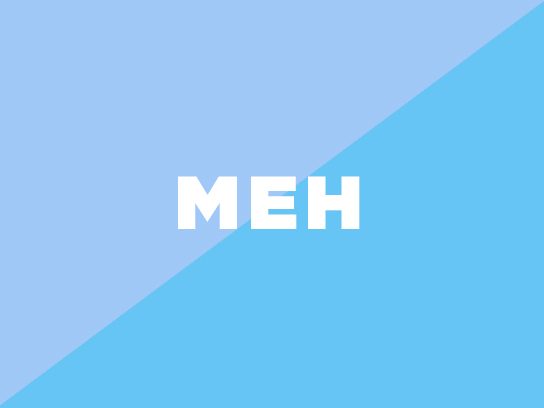
Meh
Lisa Simpson is credited with bringing “meh” into widespread use, but where did the Simpsons writers pick it up? John Swartzwelder explains, “I had originally heard the word from an advertising writer named Howie Krakow back in 1970 or 1971 who insisted it was the funniest word in the world,” but where Krakow learned it remains a mystery. It’s most likely a Yiddish term, meaning, well, “meh.”
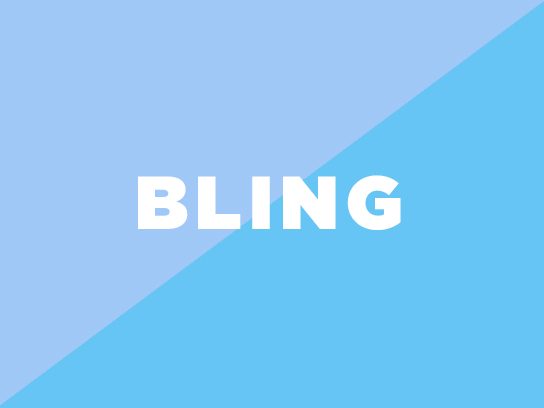
Bling
As far back as the early 1990s, “bling-bling” was in use in the New Orleans rap music community. In early 1996, Tupac Shakur recorded a song called “Friendz,” where he rapped “Check out my diamonds … everyone gonna blink,” while “bling bling” is repeated in the background. But that song wasn’t released until 2001, so rapper B.G. is credited with introducing the phrase in his 1999 song “Bling-Bling.” A year later, Shaquille O’Neal popularized it when he boasted that the Lakers’ championship rings would go “bling-bling.” He was right: The phrase “bling bling” was carved into the sides of their official rings after they won the finals. Bling entered the dictionary in 2003.
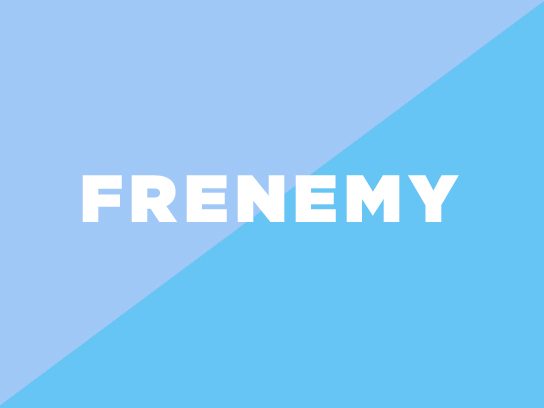
Frenemy
This portmanteau of “friend” and “enemy” dates back to 1953 when columnist Walter Winchell coined it in this headline: “Howz about calling the Russians our Frienemies?” Two decades later in 1977, British journalist Jessica Mitford used it in a Daily Mail article. Despite that, the word didn’t catch on until 1998 when the pop band New Radicals used it in its hit “You Get What You Give.” It was cemented as a pop-culture buzzword in a 2000 episode of Sex and the City titled “Frenemies.”

Hipster
It’s a word generally said with scorn today, but that wasn’t always so. It dates back to the jazz scene of the 1930s, when singer Cab Calloway wrote in his book Hepster’s Dictionary: Language of Jive that a “hep cat” was “a guy who knows all the answers, understands jive.” The hepster in the book’s title soon changed to hipster and became a catchphrase in the 1940s jazz scene. As the jazz counterculture faded, so did the term, until it was revived in the 1990s to describe someone who tries way too hard to be cool.
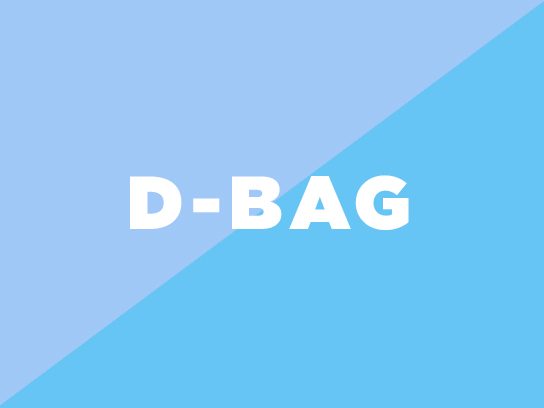
D-bag
The method of cleansing a woman’s genitalia (known as douching) has been around since the 1700s, but its slang use as an insult can be traced to a 1939 book called Ninety Times Guilty, which featured a character named Jimmy Douchebag. In 1946 the term was used in the military to refer to someone who was “a misfit,” and the shortened “douche” was college slang as far back as 1968. The insult went mainstream thanks to this exchange in the 1984 movie Revenge of the Nerds:
Stan: “What are you looking at, nerd?”
Booger: “I thought I was looking at my mother’s old douchebag, but that’s in Ohio.”
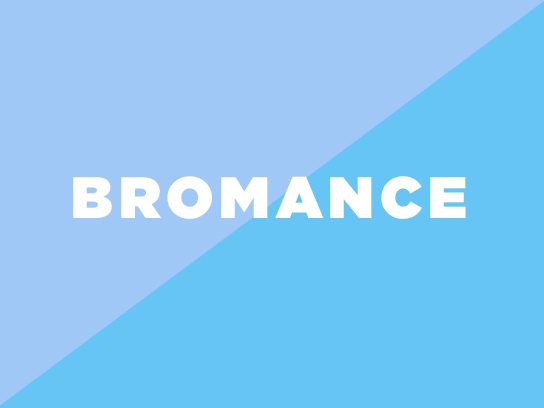
Bromance
This portmanteau of brother and romance describes two guys who have deep affection for each other, albeit in a totally platonic, manly way. Where the term originated is unclear, but credit is usually given to Dave Carnie, editor of the 1990s skateboarding magazine Big Brother (which spawned the MTV show Jackass). In a 2011 interview, Carnie lamented, “I’m sorry about bromance. I don’t think that I invented that stupid word, but if I did, I’m truly sorry. I should also say that I don’t mind taking credit for it, at least until the true author steps forward. Because, as you know, as a writer, to have created a word that actually comes out of people’s faces, well, that’s the greatest honor that could be bestowed upon me.” Well said, bro.
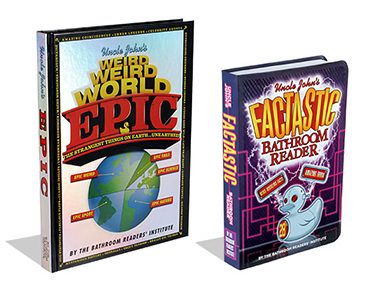
More Fascinating and Fun Facts
